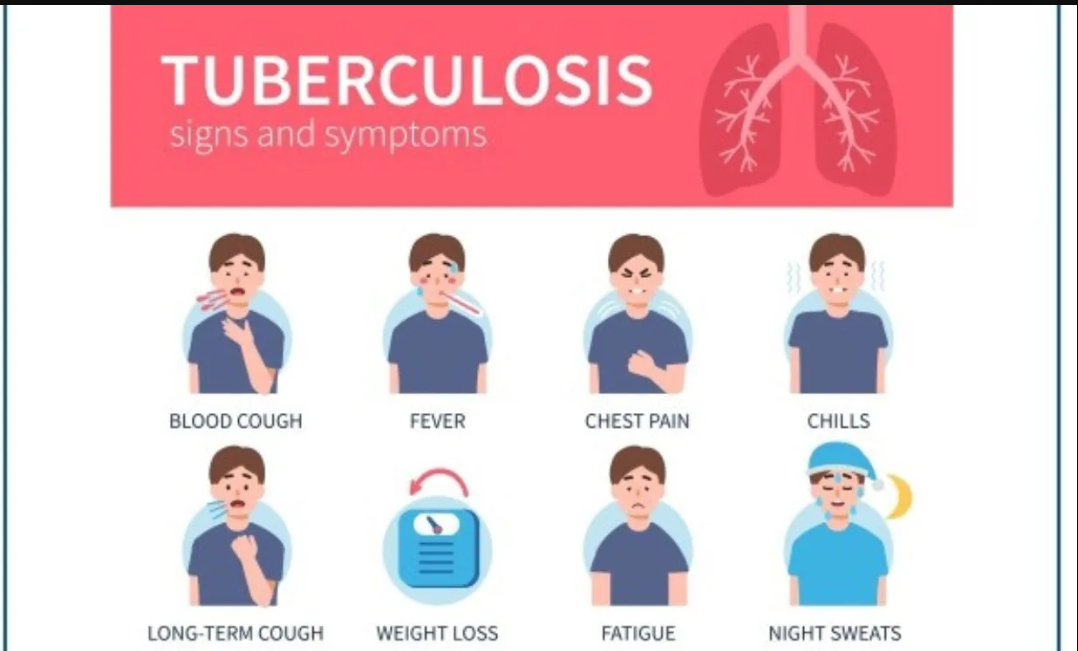Tuberculosis (TB) is a contagious disease caused by a bacteria called Mycobacterium tuberculosis. This bacteria attacks the lungs and spreads when an infected individual coughs or sneezes out the bacteria. To become infected with TB, you must be exposed for a long period of time, so you are more likely to get infected from a close family member or co-worker than a casual acquaintance. Once you have inhaled the bacterium, it lodges in your lung tissue.
Not everyone infected with TB bacteria becomes sick. Healthy individuals may have latent TB, in which the bacteria may not become active until months or years later. It may become active when immunity weakens. Such persons cannot spread tuberculosis to others. Those with weak immunity are at a greater risk of developing active TB right away. The bacteria settle in their lungs and start growing because their immune systems cannot fight the infection. The bacteria can move from the lungs to different parts through the blood. It can affect bones, lymph nodes, brain, kidney, spine and even the skin. This condition can be serious if not treated properly.
What are the Main Symptoms of TB?
TB may develop within days or weeks after the infection. In the case of latent tuberculosis, the patient won’t show any symptoms. The bacteria do not cause any harm, even though you may still have this bacteria residing in your body.
The main symptoms of active tuberculosis include:
-
Prolonged cough lasting longer than three weeks
-
Chills with a fever
-
appetite and weight loss
-
Sweats, particularly at night
-
Cough with blood or sputum
-
Bone pain
-
Weakness
-
Tiredness
Since these symptoms might also indicate other illnesses, it’s better to visit a doctor for a diagnosis of tuberculosis.
What are the Best Preventive Measures for TB?
Bacille Calmette-Guérin (BCG) is the vaccine available against tuberculosis. This vaccine is frequently administered to newborns and young children. It’s best to have your child vaccinated for TB to eliminate the risk of developing this disease in their adulthood.
What are the Best Medications to Treat TB?
If you have an active TB disease, your doctor will most likely prescribe a combination of antibiotics for six to 12 months. The most common antibiotic for active TB is isoniazid INH in combination with rifampin, pyrazinamide and ethambutol. The fixed doses of these medicines help fight tuberculosis infection. You may feel better only a few weeks after starting these medicines. However, it takes more time to recover from TB than a normal bacterial infection.
You must continue taking your medication for the duration as prescribed by your doctor and complete a full course of treatment. This will reduce the chance of recurrence of infection. Not completing your full course of treatment could also lead to drug-resistant TB.
You will require routine checkups to ensure that your treatment is effective while you are receiving treatment for active TB. The medications mentioned above can cause a few side effects, such as :
-
Nausea and vomiting
-
upset stomach, or appetite loss
-
Numbness or tingling in the hands or feet
-
Rashes
-
bruises, or itchy skin
-
Blurry vision or changes in your eyesight
-
Yellow-coloured eyes or skin
-
Dark coloured urine
-
Weakness
-
Exhaustion
-
fever lasting more than three days
These symptoms are temporary and disappear when the medicines are discontinued. If you experience any unexpected or persistent symptoms while taking medication for active TB disease, inform your doctor. Those with active liver disease should also inform their doctor before taking TB Medicines. They might be toxic to their liver. Your doctor may also prescribe a vitamin B6 supplement if you are experiencing tingling and numbness.
Important Tips to Take TB Medicines
-
For optimal effectiveness of TB medicines, follow these tips:
-
Take your medication at the same time each day.
-
Make a note on a calendar of the times you take your medication each day.
-
Purchase a weekly medicine dispenser with sections designated for every day of the week. Fill it with your medications for the week.
As your treatment can continue for 12 months, it’s better to get your medicines restocked from online pharmacies. If you order from online medicine apps like Truemeds, which offer alternative medicines, you can save a lot on your TB medicine expenses.











